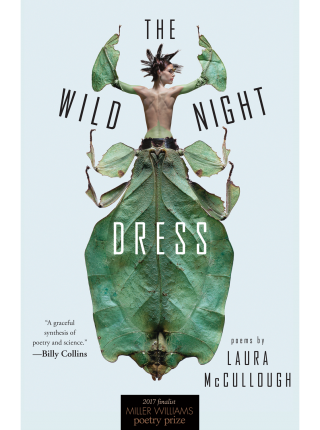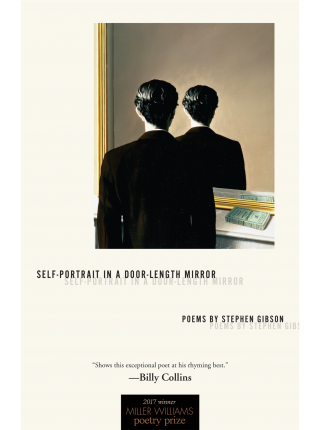Finalist, 2017 Miller Williams Poetry Prize, edited by Billy Collins
“Forces an eye-opening change in perspective.”
—Billy Collins
In Mr. Stevens’ Secretary, a fictional assistant to Wallace Stevens juggles her roles as a mother, a wife, a believer, and a working woman. Privy at times to the famous poet’s personal life, the secretary must balance her curiosity about Stevens with her commitment to her husband, her faith, and the life she desires.
This vivid and compelling character struggles with fears of mental illness and the challenges of working for a prominent, reserved man, all while adjusting to new environs. She leaves her home, and her job, as she contemplates whether her marriage is worth saving and if she can reconcile the Baptist faith of her upbringing with the questions raised by her new place in the world. Throughout, we are witness to her complex relationship with the famous modernist poet, and with writing itself.

Frances Schenkkan is a National Poetry Series finalist, and her poems have appeared in the Southern Review, POOL, and Third Coast, among others. She lives in Austin.
“Mr. Stevens’ Secretary—yes, it’s that Mr. Stevens—is a series of vignettes taken from (or invented to create) the life of the great modernist’s secretary. We see what Stevens looked like from her point of view, which includes how Stevens smelled—not bad as it turns out. Like Carol Ann Duffy’s boldly feminist collection, The World’s Wife, Frances Schenkkan’s Mr. Stevens’ Secretary forces readers to adjust their perspective by showing a great man through the eyes of a previously silent and less visible woman.”
—Billy Collins
“Frances Schenkkan’s poems provide a fresh perspective on the brilliant, enigmatic Wallace Stevens, whose inimitable music still haunts us sixty years after his death. Two lives running parallel to each other: a woman from the South with madness in her family, someone like many of us looking for something like a transcendence, brought together with a large red man from Reading, an edifice at times and a gentle human being at others, who, in his own special language, was searching for the same. By giving us Stevens’ fictive secretary, the woman who transcribed Stevens’ letters and poems written in an almost indecipherable cursive, trying all the while to comprehend the elusive giant, Schenkkan manages as only a poet can to reveal a great deal about who this solitary genius was.”
—Paul Mariani, author of The Whole Harmonium: The Life of Wallace Stevens and Epitaphs for the Journey: Poems
“Though we don’t yet know it, Stevens’ secretary, as Schenkkan imagines her, respectfully throws down a feminist gauntlet in its opening stanza: ‘All we know is, she’s his secretary / and he is Mr. Stevens.’ As we get to know her in these fiercely intelligent poems, as she questions her marital and mental health, she seems refreshingly sane, given the existing sexist roles, and we finish richer for her inspired lyrics: ‘Any light today would be beheld. / And night could be seen through.’”
—April Ossmann, author of Event Boundaries
Finalist for the John A. Robertson Award for First Book of Poetry from the Texas Institute of Letters.





